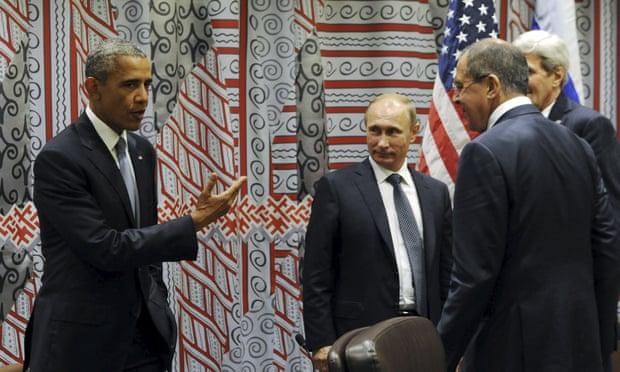By Jethro Mullen
Afghan officials vowed to quickly drive the Taliban back out again from the northern provincial capital where the insurgents
freed hundreds of inmates from a prison and raised their white flag at points around town.
On Tuesday, the Interior Ministry reported some areas had already been reclaimed and promised "a big military operation" to come. The United States also appeared to join the fray, carrying out an airstrike in Kunduz province.
As the world watches, the embattled Afghan government can't afford to let the Taliban hang on to a key population center.
Here are the main reasons why the fall of Kunduz is a big deal:
It's the biggest Taliban victory since 2001
A U.S.-led coalition helped local Afghan forces drive the Taliban out of Kabul, the capital, in the aftermath of the September 11 attacks in 2001. But stamping out the Taliban across the rest of the country proved to be an elusive goal.
The militants no longer held sway in the main cities but remained a deadly foe, clashing with foreign troops over Afghanistan's rugged terrain and launching frequent suicide attacks in population centers. After 13 years and the deaths of thousands of its service members, the international coalition ended its combat mission last year, leaving Afghan forces at the forefront of the fight.
The loss of Kunduz, even if the Afghan government manages to take it back soon, is an ominous sign. It's Afghanistan's fifth largest city and the capital of the province of the same name.
"This is the biggest town they've been able to take since 2001," said Nic Robertson, CNN's international diplomatic editor. "This is a significant target and prize for the Taliban."
It highlights the weakness of Afghanistan's NATO-trained forces
The U.S. government has tried to portray the handover of combat duties to Afghan troops as a step forward.
"Instead of Americans patrolling the valleys of Afghanistan, we've trained their security forces, who've now taken the lead," President Barack Obama said in his
State of the Union address in January.
But analysts have expressed concern about issues like corruption, poor recruitment and problematic coordination among the different branches of the Afghan security forces: the army, police and local militias.
The Taliban's intent to try to take Kunduz was well flagged, and yet Afghan forces were unable to hold the city despite outnumbering the attackers. "Since about April this year, the Taliban increased their strength in the countryside to the north of Kunduz and have essentially had it in their sights since then," Robertson said.
It complicates the next move for the U.S.
The fall of Kunduz comes at an awkward time for U.S. officials as they debate what kind of military presence they want to have in Afghanistan in the coming years. Gen. John Campbell, the top commander of U.S. and NATO forces in Afghanistan, is due to
testify before a U.S. Senate committee about the situation in Afghanistan next week.
The Wall Street Journal reported last week that Campbell had sent five different proposals to the Pentagon and NATO officials on what to do with the roughly 10,000 U.S. troops currently in the country, most of whom are there to train, advise and assist Afghan security forces.
The recommendations range from keeping U.S. troops at their current level or sticking to the current plan to cut them dramatically to a small force by the end of next year, the report said. In a fresh indication of the Afghans' continued reliance on American backup, the U.S. military said it carried out an airstrike in Kunduz province on Tuesday.
It shows the Taliban remain a force to be reckoned with
The militant group hasn't had the easiest year. ISIS has been
reported to be eating into its recruitment efforts in Afghanistan, and internal divisions in the Taliban were laid bare after the admission that longtime leader Mullah Omar had
died more than two years ago.
But despite
initial questions over whether the group would fall apart, new leader Mullah Akhtar Muhammad Mansour appears to have overcome the bumpy start and can now point to big blow against the Afghan government in Kunduz.
The Taliban appear to have made the most of the first summer fighting season since NATO troops took a step back. But there are still doubts about the militant group's ability to hold onto large areas of territory.
"It can destabilize far more than it can control," said
a report in May by the Brookings Institution.
It's a fresh blow for the Afghan government
The Kunduz defeat is an embarrassing setback for Afghan President Ashraf Ghani, who's had a troubled first year in office. He took power after a lengthy political standoff with his main rival that paralyzed government. Problems have continued since then, including the inability to find a nominee for the key role of defense minister whom lawmakers will approve.
"The country's deep and broad political divisions and wounds, exacerbated by the presidential election, have not begun to heal," the Brookings report said.
The Taliban resurgence and the increasingly apparent shortcomings of the Afghan security forces are likely to do further damage to Ghani's leadership credentials.
"The army by its retreat yesterday, and the police by their retreat as well, have really shown that there are question marks over the government's ability to impose its writ in Kunduz, at least in the short term," Robertson said.









